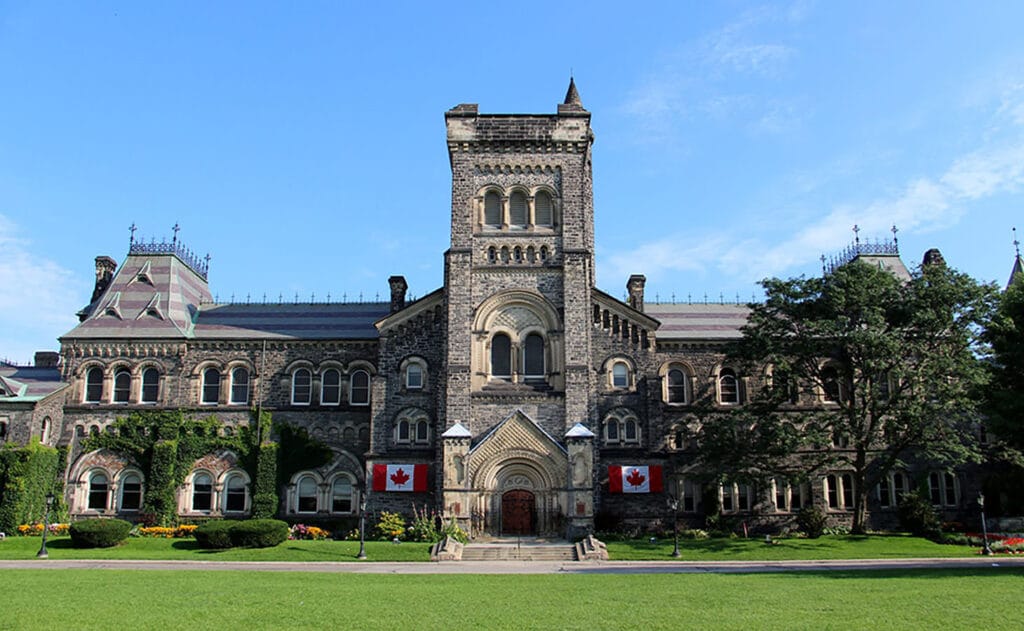Have you ever imagined studying in one of the most desirable educational destinations in the world? Canada, known for its top-ranking universities, cultural diversity, and welcoming environment, is the ultimate choice for thousands of students every year. But before you can unlock the doors to this academic paradise, there’s a vital step to take: obtaining a Canada Study Permit.
This permit is not just a ticket to your dream university but also an opportunity to experience life in one of the most welcoming and innovative countries. In this guide, we’ll unravel the conditions you must meet and the step-by-step process to secure your Canada Study Permit, ensuring your transition to studying abroad is as seamless as possible.
Obtaining a Canada Student Visa is a crucial step for international students who wish to pursue higher education in the country and potentially explore future immigration opportunities.
Required Documents for Obtaining a Canadian Study Permit
- Acceptance letter from a designated learning institution (DLI)
- Provincial or regional attestation letter certificate (PAL)
- Financial proof documents such as bank statements
- Identity documents like birth certificate, ID, and passport
- Letter of explanation
- Medical examination certificate
- (non-) criminal record certificate
Applicants who have been accepted into institutions in Quebec must also provide a Quebec Acceptance Certificate (CAQ) along with their documents.
For more detailed information and updates on the document requirements, visit the Government of Canada website. It provides the latest guidelines and procedures for obtaining a study permit and other immigration-related matters.
Steps to Obtain a Canadian Study Permit
- Obtain a Letter of Acceptance (LOA): Secure admission from a Designated Learning Institution (DLI) in Canada. Ensure the program and institution meet eligibility criteria for international students.
- Create a MyCIC Account: Register on the official website of Immigration, Refugees and Citizenship Canada (IRCC) to start your study permit application.
- Submit Required Documents: Upload supporting documents such as proof of identity, LOA, financial statements, and a statement of purpose, ensuring they meet IRCC requirements.
- Pay Application Fees: Pay the processing fee for the study permit application (currently CAD $150) and biometrics fee (CAD $85 if applicable).
- Complete Biometrics: Visit a designated visa application center (VAC) to provide your fingerprints and photo for identity verification after receiving instructions.
- Submit Your Application: Finalize and submit the completed study permit application, ensuring all sections are accurate and complete.
- Await Decision: Monitor your MyCIC account for updates. Once approved, you will receive a Port of Entry (POE) letter of introduction.
- Receive Study Permit: Present the POE letter, LOA, and proof of financials to the immigration officer upon arriving in Canada to receive your study permit.
Financial Requirements for Obtaining a Canada Study Permit
Proving sufficient financial ability to cover tuition and living expenses in Canada is one of the most crucial requirements for obtaining a study permit. Insufficient financial ability is among the main reasons for the rejection of applicants’ requests. The amount required may vary based on tuition fees.
Tuition fees differ for each applicant depending on the university or educational institution, field, and level of study.
The Canadian government estimates that international students need a minimum of CAD $15,000 annually for living expenses, excluding tuition. This amount covers essentials such as housing, food, transportation, and other personal expenses. It is also the standard financial requirement that must be demonstrated when applying for a study permit.
Importance of the Language Certification for Obtaining a Canadian Study Permit
The required score for language tests such as IELTS may vary depending on the university, field, and level of study. Most Designated Learning Institutions (DLIs) in Canada require proof of language proficiency, such as IELTS, TOEFL, or TEF, as part of their admission process.
These certifications ensure that students can comprehend lectures, complete assignments, and engage effectively in academic settings.
While most universities and colleges in Canada require a language certificate, especially the IELTS certificate for admission, some Canadian educational institutions do not have such a requirement. also, some colleges or universities in Canada offer language courses as a prerequisite to their international students.

Tuition Costs in Canada at Different Educational Levels
The cost of education and tuition fees at Canadian universities is generally more affordable compared to many other developed countries, such as the UK, Australia, and New Zealand.
- Typically, annual tuition fees for international students range from CAD 14,000 to CAD 60,000.
- Undergraduate programs typically cost between CAD 14,000 and CAD 40,000 per year, while specialized graduate programs, such as MBAs or professional degrees in fields like medicine, can exceed CAD 60,000.
- For Canadian students (permanent residents or citizens), tuition fees are significantly lower. On average, tuition for domestic students ranges from CAD 4,000 to CAD 7,000 per year at institutions outside of Quebec. However, in Quebec, tuition fees are even more affordable, ranging from CAD 1,000 to CAD 3,000 annually.
Cost of Living and Education in Canada
The cost of living for students in Canada can vary based on the university, location, and lifestyle. On average, an international undergraduate student needs approximately 17,000 CAD per year, while a master’s student requires around 16,500 CAD to cover their expenses. Living costs for students can even reach up to 50,000 CAD.
In addition to the main costs of living and education in Canada, there are also additional expenses that international students should consider.
It is worth mentioning that international students are allowed to work part-time (up to 20 hours per week) during their studies to help cover some of their costs. Moreover, international students have the opportunity to apply for government and university scholarships in Canada.
Cost and Processing Time for a Canadian Study Permit Application
When applying for a Canada study permit, there are associated costs and processing times you should be aware of:
Processing Time
The typical processing time for a Canadian study permit is around 9 to 11 weeks, though it can vary based on factors like the volume of applications and the specific visa office handling your case. It’s advisable to submit your application well in advance to avoid any delays and ensure your study plans are not disrupted.
Application Fee
The application fee for a study permit is generally 150 CAD. Additional fees may apply for biometrics and other required documents, so it’s essential to check the full list of fees on the official IRCC website.
Study Permit Extension
If you plan to stay in Canada longer than initially intended, you will need to apply for an extension of your study permit at least 30 days before its expiration date. It’s crucial to ensure your passport is valid at the time of application for the extension. If your passport is about to expire, consider renewing it through the Iranian virtual consulate in Canada (Ottawa).

How to Stay in Canada After Graduation?
Graduates from Canadian institutions can apply for a Post-Graduation Work Permit (PGWP), which allows them to gain valuable work experience in Canada. The validity of the work permit depends on the length of the program, with 2-year permits for programs lasting 8 months to 2 years and 3-year permits for programs longer than 2 years.
Programs shorter than 8 months or part-time studies are not eligible for a PGWP. Graduates have only 90 days after completing their studies to apply for the work permit. Gaining Canadian work experience through the PGWP can help graduates qualify for immigration programs like the Canadian Experience Class (CEC), which may lead to permanent residency.
Conclusion: How to Get Started
Starting your journey with a Canada study permit requires careful planning and preparation. First, research and choose a designated learning institution (DLI) that aligns with your academic and career goals. Next, gather the necessary documents, including proof of acceptance, financial support, and other eligibility requirements. Once ready, submit your Canada study permit application online or through a visa application center in your country.
You may also need to provide biometric data and attend an interview, depending on your home country. Preparing early and ensuring all requirements are met will help streamline the process and increase your chances of approval.
If you want to learn more about how to submit a strong Canada study permit application that maximizes your chances of approval, fill out our online assessment form. Our experienced team is here to guide you through every step of the process, ensuring your application is strong, competitive, and successful.










